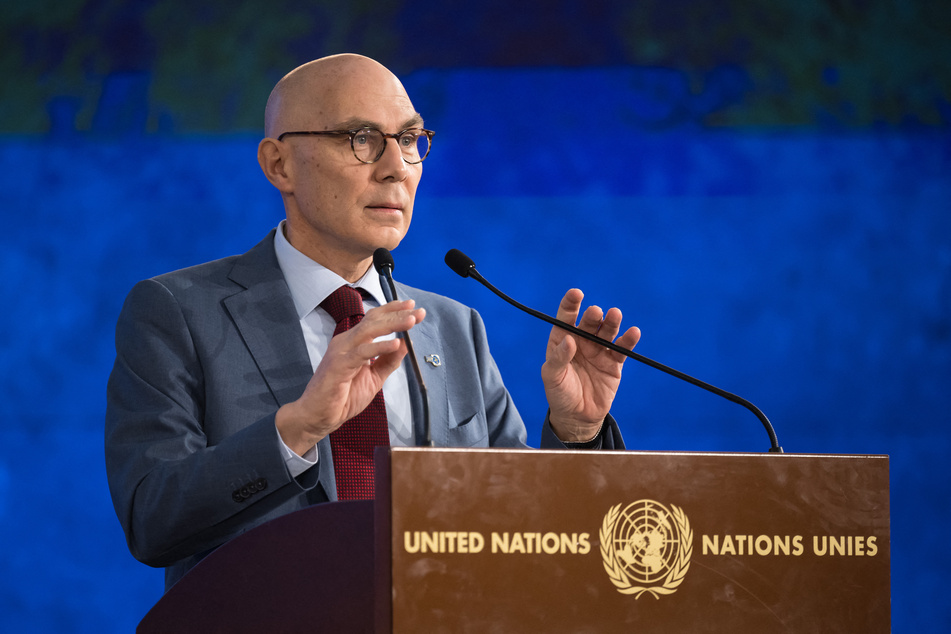Alabama carries out nitrogen gas execution as human rights advocates react with shock
Atmore, Alabama - Alabama on Thursday put to death a convicted murderer using nitrogen gas, the first time the country has used a horrific execution method that the UN rights chief said may amount to torture.

Kenneth Eugene Smith was pronounced dead at 8:25 PM CT, according to the state attorney general.
"Justice has been served. Tonight, Kenneth Smith was put to death for the heinous act he committed over 35 years ago," the statement by Attorney General Steve Marshall said.
Smith (58) was on death row for more than three decades after being convicted of the 1988 murder-for-hire of a pastor's wife.
He was put to death at Holman Prison in Atmore, Alabama by nitrogen hypoxia, which involved pumping nitrogen gas into a facemask, causing him to suffocate.
According to witnesses, he "began writhing and thrashing for approximately two to four minutes, followed by around five minutes of heavy breathing," local news outlet AL.com reported.
Smith appeared to be "holding his breath as long as he could" and there was "involuntary movement" and gasping, Alabama Department of Corrections Commissioner John Hamm told reporters.
The curtain over the media witness room opened at 7:53 PM, AL.com said, with Smith pronounced dead less than 35 minutes later.
Smith's last words as Alabama shocks world with execution

The UN's human rights chief Volker Turk said he deeply regretted the execution.
"This novel and untested method of suffocation by nitrogen gas may amount to torture, or cruel, inhuman, or degrading treatment," he said, according to a statement.
Robin Maher, executive director of the Death Penalty Information Center, called it "an untested, unproven method of execution."
"It's never been used before to execute anyone in the United States, or anyone in the world as far as we know," Maher told AFP.
Smith was subjected to a botched execution attempt in November 2022, when prison officials were unable to set intravenous lines to administer a lethal injection.
His last words Thursday were, "Tonight, Alabama caused humanity to take a step backward," according to the local CBS affiliate.
"I am leaving with love, peace and light... I love you. Thank you for supporting me. I love all of you," Smith said.
Alabama insists nitrogen hypoxia is "most humane" execution method
Alabama is one of three US states that have approved the use of nitrogen hypoxia as a method of execution, along with Oklahoma and Mississippi.
While it had never previously been used to execute humans in the US, nitrogen gas is sometimes used to kill animals.
But Turk's office pointed out before the execution that even the American Veterinary Medical Association recommends giving large animals a sedative when being euthanized in this manner.
Alabama's protocol for execution by nitrogen asphyxiation makes no provision for sedation. The state defended the method as "perhaps the most humane method of execution ever devised."
The US Supreme Court rejected Smith's appeal for a stay of execution.
Cover photo: Collage: REUTERS & via REUTERS

